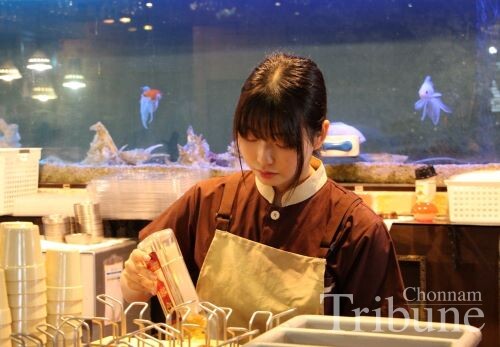
Labor, for students, feels far, simultaneously being deeply rooted in pain. In this rapidly changing society, the public perception of the value of labor is also changing over time. While voices continue to rise for the guarantee of legitimate rights for laborers, especially the traditionally underprivileged, many problems are being found for part-time workers. Some of them are college students, and they are experiencing working real jobs as part-time employees for the first time. They, not even defining themselves as a ‘laborer’, are often treated poorly at labor sites. Some statistical data, including the Economic Misery Index as a representative example presented by ‘The Federation of Korean Industries’, demonstrate economic challenges faced by the youth, in contrast with other age groups. The emergence of freeters, who make a living from part-time jobs without finding a fixed full-time job due to economic conditions, coupled with inflation and employment difficulties, also shows the growing importance of guaranteeing part-time workers' appropriate rights. The Chonnam Tribune delved into this issue through interviews with fellow students and labor experts.
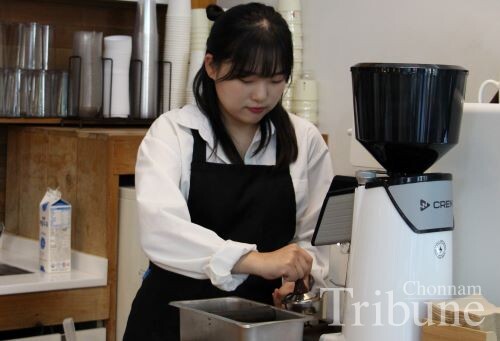
Part-Time Working Condition Reports
Last year, the Youth Community Union conducted a survey, focusing on minimum-wage workplaces near universities. The result showed that out of all the workers, 20 to 30 percent of workers did not receive at least minimum wage, 50 percent did not have a set contract period, and more than 70 percent did not receive weekly holiday pay. Even the matters regulated by the Labor Standards Act were not assured enough, and the treatment in the field, unrelated to the rule of law, was even worse. According to the results of labor supervision, presented by the Ministry of Employment and Labor last year, over 80 percent of surveyed workers criticized the poor working conditions, including irregular work schedules and unclear break times.
The vast majority of survey respondents answered that they have not only never used paid vacation or annual leave but have also never received any guidance on those. This set of statistical data demonstrates that such occurrences of unfair practices in the workplaces, predominantly engaged in by young individuals, particularly students, are not isolated cases but rather prevalent social phenomena.
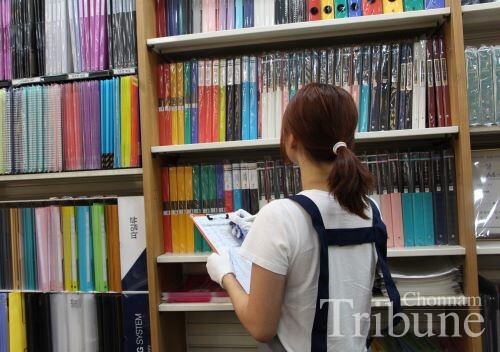
Workplace Issues in Experiences
Then, what are the specific experiences of students? Kim Do-eun (Sophomore, Faculty of Business Administration) said, “I have worked at both franchise and small-owned cafes, and none of these places gave me holiday pay even when I satisfied the legal requirements of working more than 15 hours a week. Some just did not pay, and others intentionally adjusted my working hours to avoid paying my weekly holiday money.” She said she often finished later than she was supposed to work when closing the store, but never got paid for the excess of work. Oh Chan-mi (Sophomore, Faculty of Business Administration) said, “Most places I have worked, including a fast food restaurant, convenience store, and clothing store, did not sign labor contracts. In those cases, overdue wages also occurred. At an office where I worked as an assistant, my pay was delayed for two months, after telling the company that I would submit a complaint letter to the labor department.” Student laborers easily find that many of their peers frequently encounter similar situations.
On the other side, employers also have their own difficulties. An on-campus-cafe manager said, “It is somewhat bothering to arrange working schedules with student workers because of their class schedule and other activities.” Their grievances occur when hiring and managing students who prioritize their studies, but it is clear that there are problems caused by the obvious unfair abuse of rights as employers at a majority of part-time workplaces. Those matters that should have been legally guaranteed matters have not been met, from not signing fundamental labor contracts to not being paid for holidays, and these examples are common.
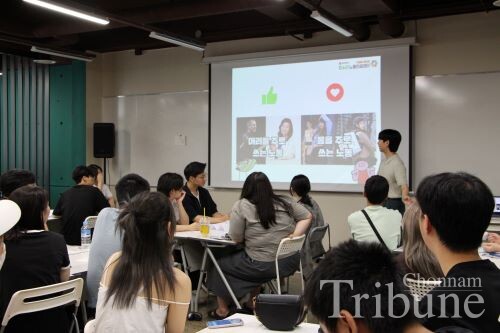
How to Improve Current Circumstances
It was very easy to find students who were exposed to an extremely unfair environment through interviews with students who have part-time job experiences. They pointed out that labor education focusing on a basic knowledge of labor rights is necessary to protect their rights. Yoon Seung-a (Junior, Dept. of Big Data Convergence) said, “Opportunities to acquire knowledge of how the law protects workers are hard to access, which makes it easier for employers to take advantage of us.” Na Ha-gyeong (Sophomore, Dept. of Biotechnology and Bioengineering) said, “It is true that many students are not familiar with labor-related laws. However, even if they are, students who have to make money immediately cannot afford to fight to be guaranteed proper treatment under the law amidst the social situation marked by widespread deficiencies.”
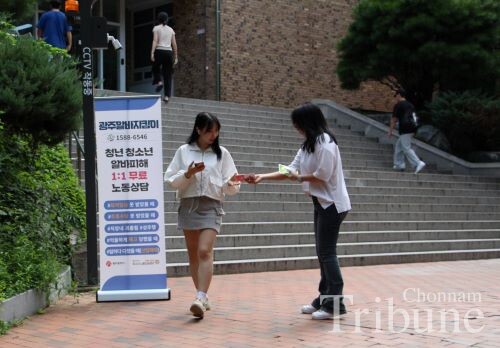
Student labor parties raised the question of whether sufficient labor rights-related education is provided to students, and whether countermeasures against injustice act as immediate practical solutions for workers. Cho Sang-kyun, who is a professor in charge of labor law counseling at the Chonnam National University Legal Clinic, said, “Even if the awareness of labor rights has recently improved a lot, both employers and employees are not fully familiar with the labor law. Furthermore, concerning cultural perception, the lack of respect for short-term workers contributes to the mistreatment.” Since there are systems for remedy, such as criminal penalties for overdue wages and the labor committee system related to unfair dismissal, education needs to be effectively conducted so that laborers, including students, can be aware of these. Above all, he emphasized that it is important to improve social awareness of the value of labor, especially for laborers who work for short durations, concurrently with their studies.
Acting to Protect Workers’ Rights
Though getting better over time according to experts, there is still a lack of awareness of the value of labor among workers in blind spots in our society. Part-time workers, who are part of the blind spot, are mostly young and have short working hours and tend to work at a job for a short period. Therefore, it seems easy not to treat them as equal employees, and they are often considered consumables. Kim Da-jeong, chair of the Youth Community Union Gwangju Branch, said, “Korea's labor law is not flawed or institutionally deficient. Therefore, it is needed to focus on a non-material and cultural approach that improves social awareness by expanding education to the public, especially business owners and workers.”
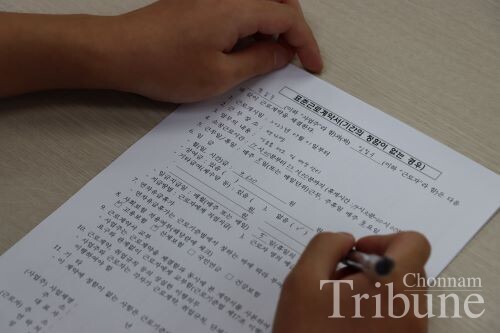
This situation is so widespread and deeply rooted that it does not seem to be a problem that can be solved through individual efforts. Nevertheless, it is indeed necessary for students to try their best to fight the injustice they are facing. Kim Da-jeong also advised the students, “I hope students remember that you could be a true owner when you fulfill your role. To be treated fairly in the workplace, it is important to know your rights, and how to exercise them.” Even if it is difficult, each small confrontation can act as an engine that promotes change in our society, eventually changing the whole world and individual lives alike.
By Song Su-min, Editor

